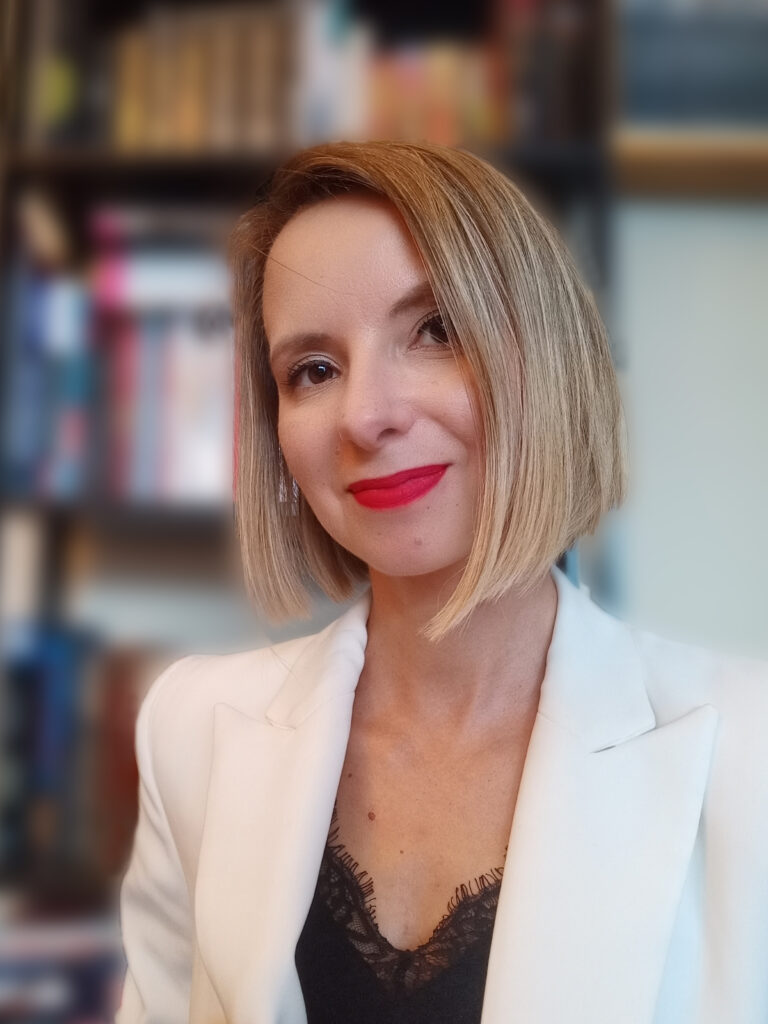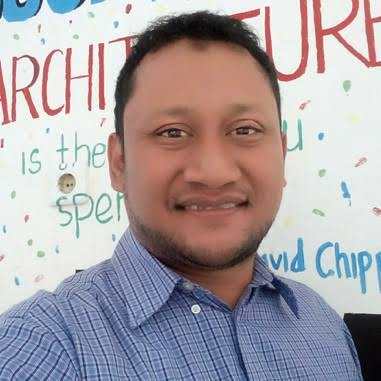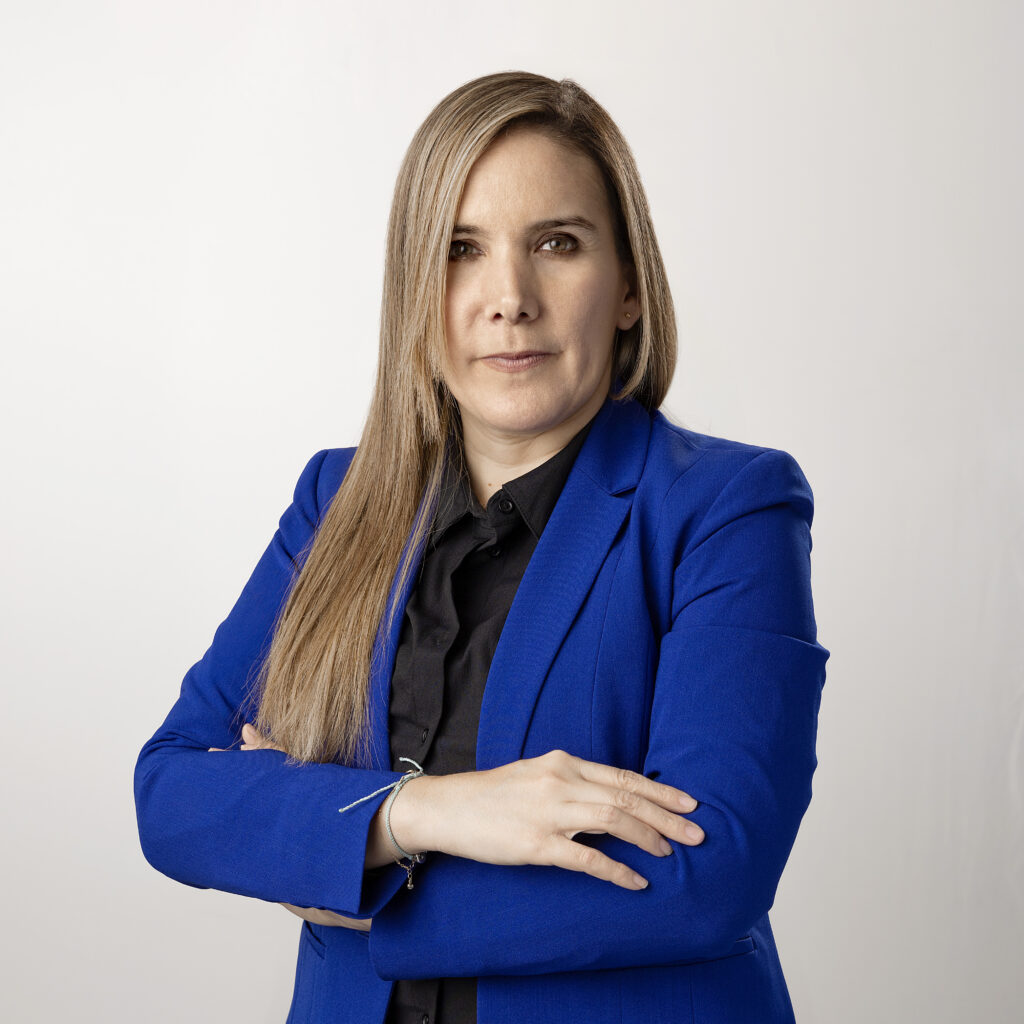DOAJ has over 100 volunteers who contribute their time and skills to reviewing applications. We are grateful for the work that our volunteers do, as editors and associate editors, supporting Open Access principles at home, in their day-to-day work, and abroad.
DOAJ volunteers come from all over the world, from a variety of backgrounds, and speak many languages. We’ve checked in with three of them in this blog post, to learn more about their background and their motivations to volunteer their time to DOAJ.
Hello, Kamila! Tell us about your background and your experience volunteering with DOAJ.

Politechnika Gdańska / Gdańsk University of Technology
Associate Editor, Polish group
I’m proud to be a part of DOAJ since July 2024. For me it’s a great opportunity to expand my knowledge and experience. I’ve been watching what DOAJ does for publishers, and especially appreciate the cooperation with COPE, OASPA and WAME. I strongly believe that transparency and ethical behaviour are key for healthy scholarly communication, and I believe they are achievable. Working as a DOAJ volunteer is quite similar to my regular work – similar information is important for both databases. I like the “investigations” that I have to do when revising applications. I feel like a Sherlock Holmes librarian! I’m always excited when I start a new application. Another important thing to mention is that I feel my work matters, because DOAJ is widely recognised as a trustworthy project.
Currently I am involved in maintaining a database of copyright and Open Access self-archiving policies for Polish scientific journals. This is a project carried out since 2018 by employees of the Gdańsk University of Technology Library, where I am an employee. 18 people were involved in the first phase of the project, co-financed by the European Regional Development Fund under the Digital Poland Operational Program for 2014-2020. Now, after external funding ceased, only 2 remain: me and my colleague from the library. The purpose of the database is to collect and analyse publishing policies regarding open access, copyright management and the use of publication content by both authors and users;
We collect information about:
1. The journal’s model (we register all types of models from subscription to open access)
2. The type of licence (CC, copyright, journal’s own licence)
3. The publishing practices (we add links to the specific tab on the journal’s website)
4. And we inform authors whether they can self-archive their texts and about specific conditions related to self-archiving: embargo, versions of the texts, where they can upload their publications
5. Links to the Sherpa Romeo database are embedded in the journal’s profile. I recently requested to add links to DOAJ journal records in our database and I’m waiting for the IT department’s decision.
Data is collected based on publicly available information as well as direct contact with the editorial office or publisher. Profiles are created by us, with information we collect on the journals (me and my colleague). To distinguish Polish scientific journals from non-Polish journals we use another database called Arianta – which registers general information about Polish scientific journals. When the profile is ready we contact the editors and send the link to them asking them to correct the data. Here you can find an example of a journal’s profile. The database of copyright and Open Access self-archiving policies of Polish scientific journals is available on the BRIDGE of Knowledge platform from the journal module after selecting the filter. Our database is part of the BRIDGE of Knowledge portal. It is non-commercial and is available to all users free of charge.
Hello, Muhamad! Tell us about your background and your experience volunteering with DOAJ.

State Islamic University of Sunan Ampel Surabaya
Editor, Indonesia 1 group
Since May 2020, I’ve had the opportunity of volunteering for the Directory of Open Access Journals (DOAJ), with an emphasis on reviewing Indonesian publications in both Indonesian and English. This has been a fascinating voyage into the realm of scientific publication and open access. As I painstakingly analyse each journal, I am not only analysing but also learning crucial publishing best practices and actively contributing to the progress of open access in Indonesia. It’s a position that allows me to be at the vanguard of academic integrity, utilising DOAJ’s rigorous criteria to identify and prevent potentially predatory publishing practices that could hurt scholars like myself and my colleagues.
My involvement with DOAJ is only one aspect of my dedication to open access. I’ve had the pleasure to collaborate with Creative Commons Indonesia (CCID), training journal managers and publishers on the value and implementation of open licensing. Furthermore, I am delighted to be a member of the Indonesian Open Access Movement, which has achieved tremendous progress in supporting open scholarship in our nation. One of our most exciting successes was the launch of RINARxiv, Indonesia’s first preprint repository. Collaborating with colleagues from many universities in Indonesia on this initiative has been extremely satisfying, as we work together to establish a more open, accessible, and transparent academic communication ecosystem in our country. As I look ahead, I’m excited to expand my involvement with DOAJ, particularly in developing and refining the review standards that are critical to sustaining the integrity of open access publishing.
Finally, I want to thank DOAJ for providing this platform for us to contribute to the global open access movement. The experience has been both fascinating and fulfilling, and I am eager to continue my journey toward a more open and accessible intellectual environment.
* Muhamad has been one of our best editors, reviewing an enormous amount of applications from Indonesian journals despite debilitating health problems
Hello, Wileidys! Tell us about your background and your experience volunteering with DOAJ.

Associate Editor, Portuguese 1 group
In my normal life as an editor, my work with DOAJ is the best way to stay up to date on trends and new ways of evaluating science.
I have worked as a volunteer since November 2023, normally reviewing journals in Portuguese from Brazil (but not exclusively). I enjoy learning about new ways in which journals show their work, because using OJS does not make them uniform; it gives them greater freedom for creativity in the way they show their advances.
I am the founder and director of Weditors.org an editor network that supports open access and develops ways to educate journal editors on good practices. You can see all the webinars we have available on YouTube. Annually we do a virtual congress to talk about best journal practices and editorial processes. Within this network, we are working on developing a scientific journal to discuss editorial matters.
Since 2018, I am a journal consultant for universities in Latin America and Africa (Through High Rate Consulting). I also participate in the project: “Parameters and strategies to increase the relevance of media and digital communication in society: curation, visualisation and visibility (CUVICOM)” funded by MICIU/AEI/PID2021-123579OB-I00 and by “ERDF/EU” (Spain). To date we have 3 papers published:
- Artigas, W. , Guallar, J. (2022). Curación de contenidos científicos en medios sociales de revistas Iberoamericanas de Comunicación. Revista De Comunicación, 21(2), 15–32.
- Cascón Katchadourian, J., Artigas, W., Guallar, J. (2023). Curación de contenidos en las redes sociales de revistas de información y documentación de Iberoamérica. BiD: textos universitaris de biblioteconomia i documentació, 51.
- Cascón-Katchadourian, J., Artigas, W., Arroyo-Machado, W., & Guallar, J. (2024). Uso de las redes sociales por las revistas de alto impacto de Comunicación y Ciencias de la información. Revista Mediterránea De Comunicación, 15(1), 19–38.
If any other editors are interested in research about scientific journals, just let me know! To sum it all up, I am an academic (teacher, researcher), consultant, volunteer, mother, wife, runner, and friend, and sometimes I do get tired. But no one can tell me that my various roles can not be brought together or that I should do them in a certain way. Women are super powerful!
How can one volunteer for DOAJ?
DOAJ will post a call for volunteers on our social media platforms. Please subscribe to and follow this blog to keep up to date with any new calls for volunteers that fit your geographical or linguistic background.
